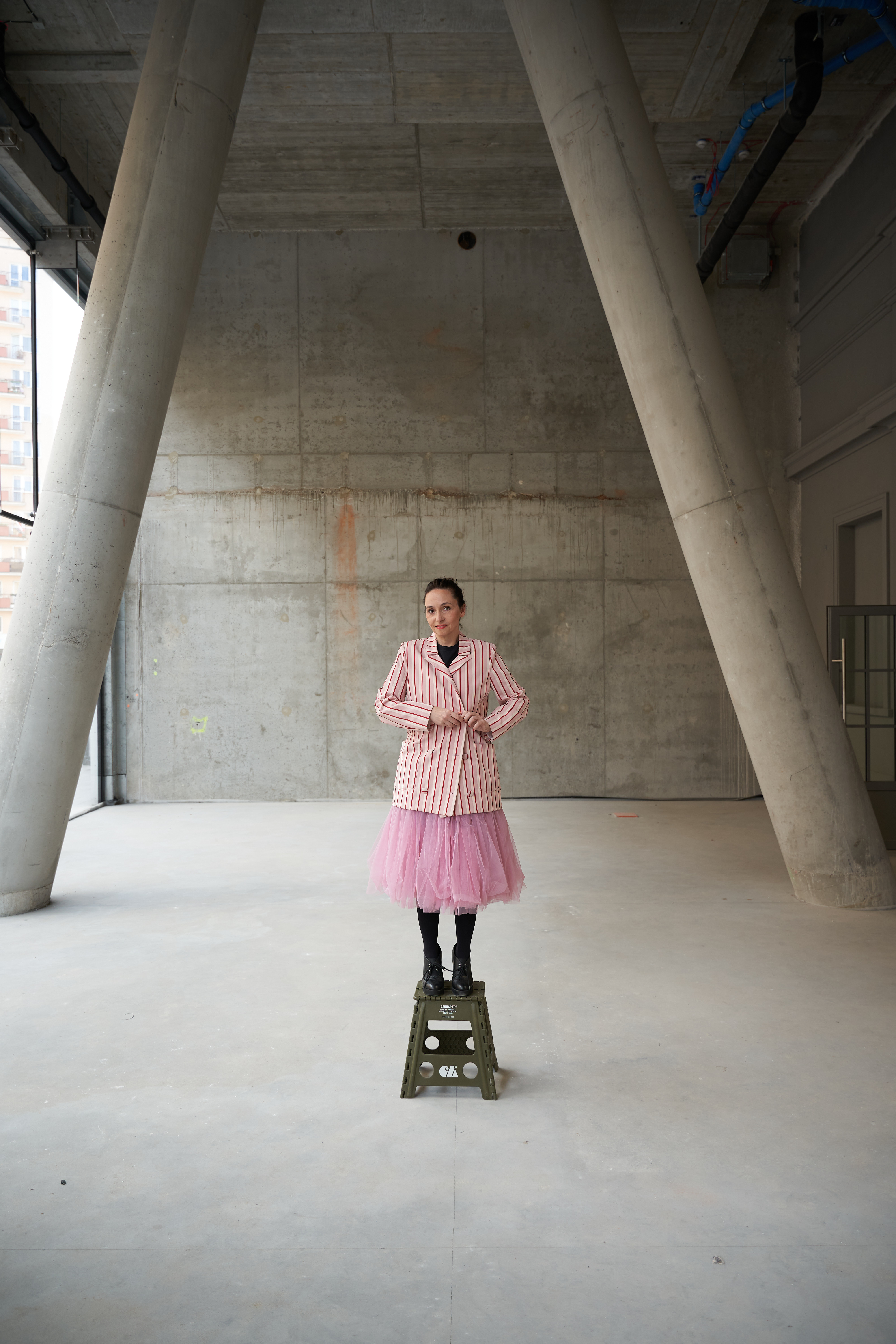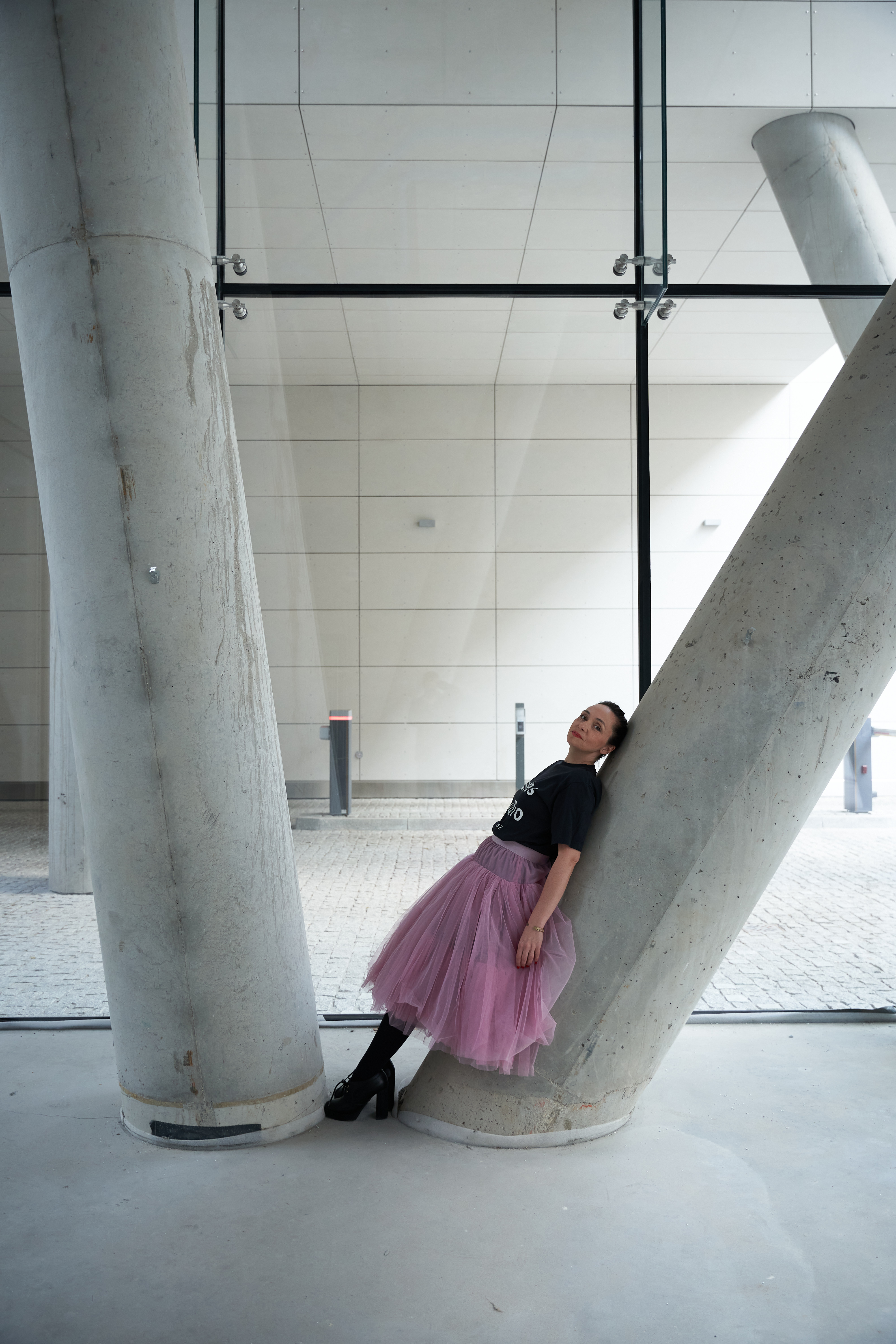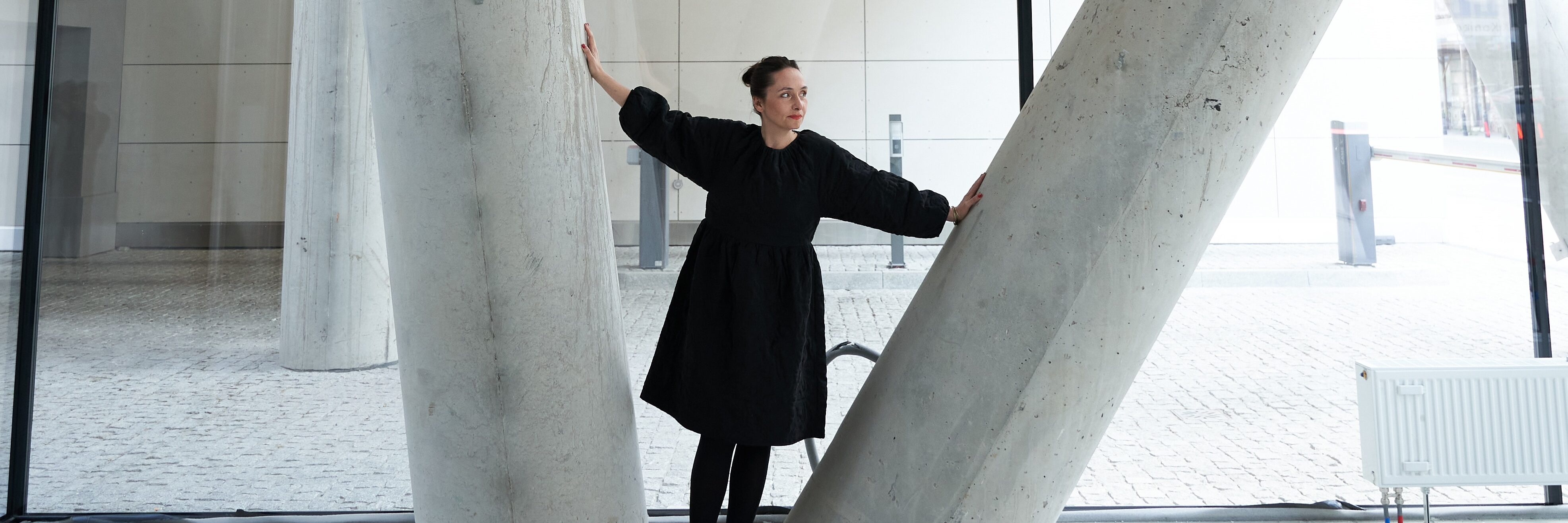Buying wisely. Design, business and sustainable development
Can design be sustainable, accessible and marketable at the same time? We talk about smart shopping habits with Marcelina Plichta-Wabnik from Wise Habit.

Photo. Vlad Baranov
Where did the idea for Wise Habit come from?
Marcelina Plichta: Going back in time a bit, to the tre brand that was founded in 2015, I joined the team and for several years together with Tomek Rygalik we ran tre, with quite a lot of success: we reached the best design stores in 26 countries. Then there was a period of big plans and a large, industry-specific foreign investor who was supposed to help implement them. Covid thwarted the scenario of entering a large group, and we didn’t really want to accept the slowdown. I stopped for a while and started working for Michał Kiciński in the Mudita brand, but soon I came to the conclusion that I still have to do something of my own. I told this to Michał, and he trusted me. He invested in tre, a new company was established and everything began to grow strongly – now we create a group ourselves. Wise Habit sp.z.o.o. is the owner of Mudita Time’s tre and sub-brand, Wise Habit, we are also creating the Mikin brand, which will appear at the turn of 2023 and 2024. It will be gaming furniture in a completely new aesthetics, which is not yet available on the market. Additionally, we provide design, R&D and strategy services. Suddenly we have four brands, services and a Concept Store, so we started thinking about a name that would be an umbrella for it all. We knew that we had to focus on common values: sustainable development, awareness and design. Sustainable development and ecological awareness is becoming more and more common, but mainly among producers. However, the consumer still has to choose. I wanted to create a place where there will be no more dilemmas, because everything will be balanced. In addition, all products are about building good habits – buying less, but wisely. Hence the name Wise Habit Concept Store. It will contain very consciously selected products, mainly from Scandinavia and Japan, which are to be used for years. The showroom itself will be designed a bit like an art gallery: filled with words and a well-thought-out juxtaposition. It will also be an open space for meetings, workshops, discussion panels: if anyone wants to do something with us, they are welcomed to. There will also be a studio for interior designers who want to work with our products.
I have the impression that in Polish design we often emphasize ideas, we treat products as works of art, and this does not necessarily go hand in hand with the business aspect, the introduction of the product to a wider market.
I’m on the other side of this force, I think it should go hand in hand. First of all, each product must have its own truth, its reason for existence – it cannot be made for the market. In fashion, when you have a good collection, it’s very easy to find a client overnight. The design sells. There are many, many small projects and companies that are often run by a designer, but it all takes time, and time is money. Ambitious projects don’t sell right away, they take time and fuel runs out quickly. I see in Poland distrust between the worlds of design and business. Business thinks that design is a whim and nothing specific, and design often cannot communicate properly – it talks about ideas but not about its value for the client. That is why I was delighted with the design department in Mudita, which is immersed in the business context, reflects on the audience groups, and knows what is happening on the market. In this context, projects are being developed that have much greater commercial potential. At tre, we were a brand with a vision that we had to give time to.
Do you think Poland is ready for a project like Wise Habit?
No.
And that does not scare you?
It may sound silly, but I’m not afraid of anything (laughs). I think that believing in what I do is half of the success. Often such faith attracts people along – look at young startups.
It seems to me that we are at a stage where we understand more and more. I teach at the School of Form and I am delighted with young people. Twenty-year-olds have a completely different mindset, they have great ecological awareness. Society is changing and it shows, the young will get others to follow.
And how do you see the state of Polish design in general compared to the rest of the world?
Polish design is hardly visible in the world. There are of course a few established names, but one song-bird does not make spring. We have a great design, but we need someone else who wants to produce it. When we were looking for an investor for tre, it turned out that it was impossible in Poland, because no one could understand this project. We don’t have a design mentality. China is said to be a country of fakes, but in Poland we also copy a lot. Years ago we used to buy counterfeit CDs at stalls, now it’s embarrassing. Design imitations are still not an embarrassment for us. I think we still have a long way to go. There are more and more Polish designers, they are very curious, but they still have to build a relationship with business, and business must understand that design means uniqueness and added value, not a whim. For now, if Polish brands want to make it, I advise them to look for capital abroad.
And what about this sustainable development? I have the impression that it is often thought of very superficially, for example as designing from waste. But projects such as a chair made of bottles cannot be factory-produced in hundreds or thousands of copies.
Our Designer and Sustanability Manager Martyna Piaścik talked a lot about sustainable development. She went to a sustainable development course in Cambridge, did a case study on how we produce and where we can improve something. Everything we design, we design according to the sustainable development policy we have developed. We know that some things cannot be produced “green”, and even if it is possible, we will not be competitive with other companies that import from China. Until now, it was impossible to produce some things in Poland – we managed to persuade a Chinese manufacturer to open a factory here. Of course, he had it planned, but it seems to me that working with us could speed up the process. At tre we have always produced locally, now we are optimizing the packaging in ecological terms, so we think about it realistically, on different levels.
Of course, we cannot change everything overnight. Regardless – we try to do it as fast as possible.
Ecological approach is always more expensive. What are the ways to convince a customer that it is worth it to pay more?
Slowly. There must be a generational change – how we think about the world will not allow us to buy unsustainably. Secondly, there are more and more regulations that impose certain obligations on producers.
It is worth paying more for mindfull products, and only sustainable ones meet this criteria. Of course, we understand that if you don’t have the money to meet your basic needs, you don’t have the space to think about the environment. Therefore, I believe that change is a process.
Do you have plans to introduce Wise Habit on international markets?
Egalitarianism is important to us, no barriers between people or those at the level of values, views or borders, which is why we want to be an international brand. Create universal products, understandable in different parts of the world. When it comes to the brands: tre, Mudita, Mikin or Wise Habit, we are entering the international market right away.
As for the WH Concept Store, our ambition, written in the business plan, is to open concept stores in New York and Tokyo. Perhaps it will turn out that Berlin will make more sense – it remains to be seen.

Photo: Vlad Baranov




